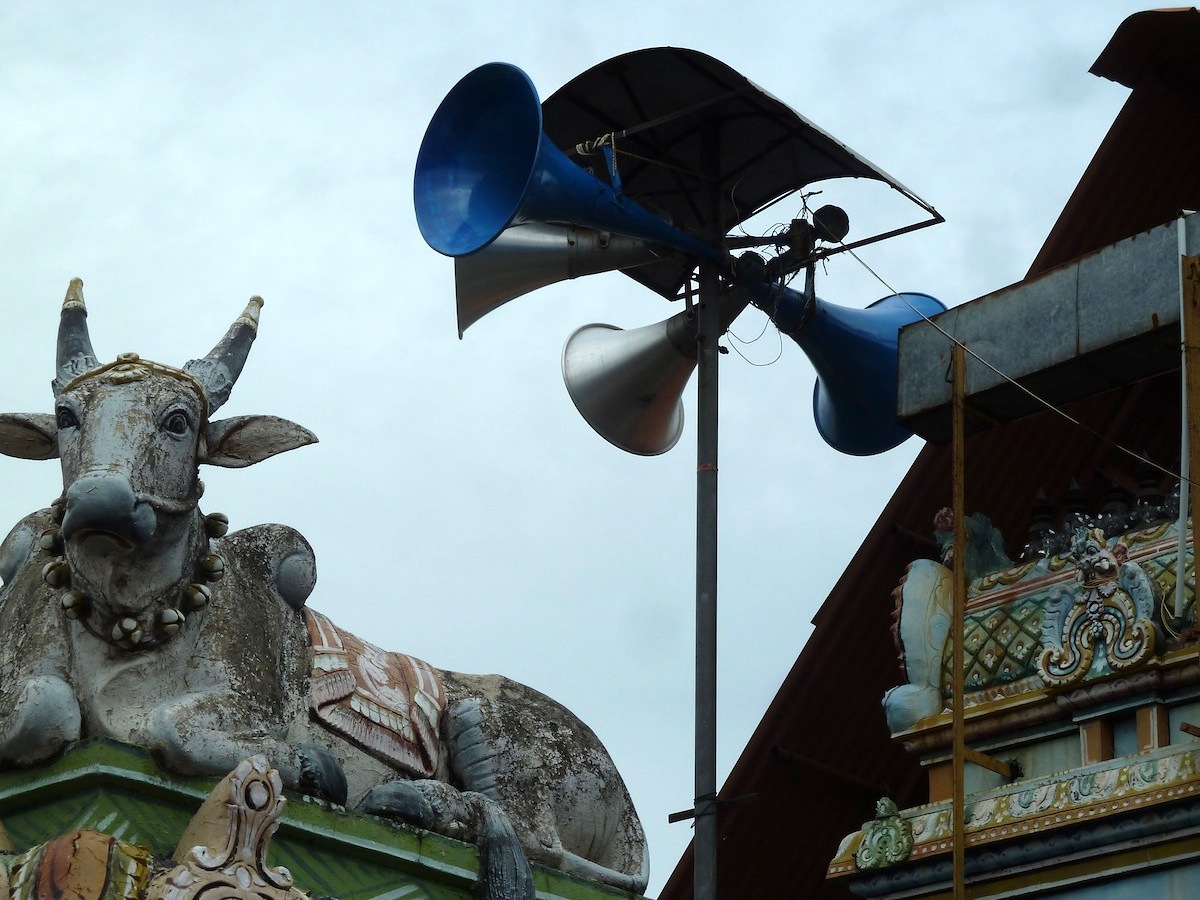5.15am, December 23rd, 2014. Tharangambadi, Tamil Nadu, India.
Pitch black. The dead of night. Except that the stillness that accompanies those well-known phrases is all too conspicuously missing.
Karin is pacing the floor, furious at being woken up yet again. We thought it might be peaceful here but there’s no denying it: love it or hate it, India is just loud. Really loud. Unremittingly so, it would seem. This time though it’s not the traffic, the honking, the drumming, the chanting, or the aeroplanes—we’re miles away from most of that. Instead it’s a recording of Hindu religious music blaring out at around 105 decibels.
The only thing to do is get up and find the source. After all, it might lead to some colourful procession or cultural insight otherwise missed. And being a prying tourist voyeur is preferable to staying in your room, holding your hands over your ears, and damning the culprits’ complete indifference to your desperate need for sleep.
Our investigation was rewarded with village life already in full swing, as well as a strong cup of tea from a roadside stall. But this was after we’d traced the source of the disturbance to a tiny Hindu temple, completely empty both within and without, except for a single woman drawing a beautiful Kolam pattern on a wet floor, and seemingly oblivious to the hearing damage being inflicted upon her and everyone else within a hundred meter radius.
The loudspeaker horns decorating the temple’s tiny turret were impressive and highly effective: there was no way anyone was going to sleep with this going on and, as we soon found out, the muezzin down the road was struggling in vain for a little attention of his own—perfectly illustrating in sonic form the religious demographics and perhaps even the tensions of India today.
Since my days of living in the old town in Salzburg—with its many church bells simultaneously belting out their invitations to worship on a Sunday morning—I’ve found the imposition of religiously motivated noise pollution both arrogant and annoying. Why inflict any one religion on all and sundry, of various religions and none, unless as a show of power? Why should anyone be woken up like this when religious people are perfectly capable of setting alarms if they want to get to their form of worship on time? I get that the peal of church bells and the like can be pleasing in certain contexts, but in my opinion nothing involving a loudspeaker should ever be countenanced. It is, thankfully, in many parts of the world against the law and enforced as such. Given that India has its own noise abatement ordinances, I’m curious to know why such flagrant abuse is tolerated on such a regular basis.
It’s not just India though. A few years back, in Cambodia, I was kept awake all night by Buddhist chanting. When someone dies there this can go on for days, apparently. And despite my Buddhist sympathies and all my various travels in Asia I’m certainly not deaf to the banality and complete lack of melodic invention in Buddhist chants. If the volume levels don’t get to you the continuous intonations on only three pitches certainly will. Carnatic musical forms are an absolute pleasure in comparison, except at 105 decibels and at five in the morning.
So why the amplification? Just because we can? Or is there a more sinister aspect to this, a sort of religious war of amplitudes, paralleling political wars—think of the use of the megaphone in contemporary Britain, particularly at election time—and echoing Hitler’s claim that “without the loudspeaker we could never have conquered Germany”?
I’m afraid to say that I’m less accepting of this racket than others. I’m not persuaded by appeals to cultural difference and tolerance. All humans suffer the same consequences of noise pollution and deafening attacks upon our personal space, be that from Audi making especially loud car horns for the Indian market, or the local temple installing loudspeakers. If you’re not in sympathy with my views, consider that a study of traffic police in Indian cities in the south concluded that three-quarters of them suffered from permanent hearing damage due to their work. As R. Murray Schafer commented, “it would seem that the world soundscape has reached an apex of vulgarity in our time, and many experts have predicted universal deafness as the ultimate consequence unless the problem can be brought quickly under control.”

Leave a Reply